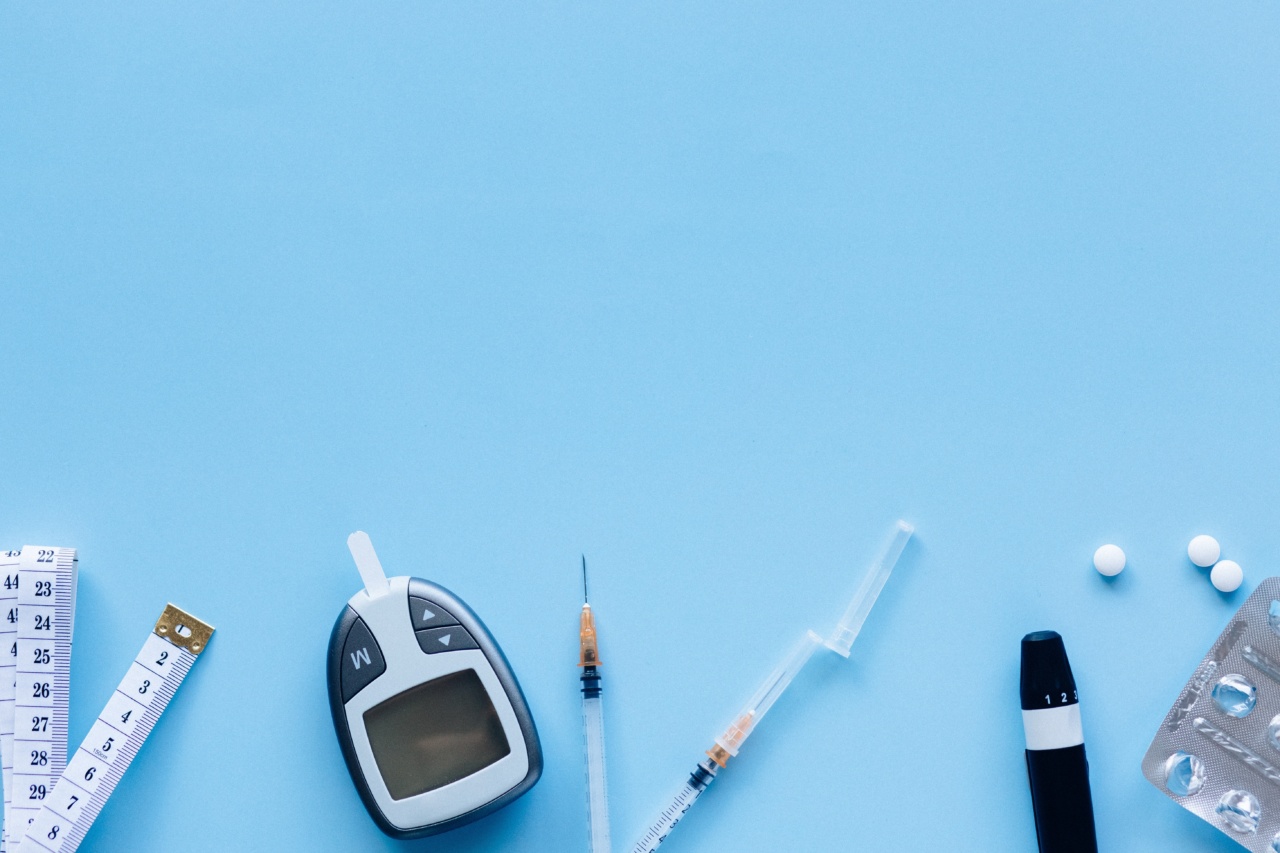Diabetes is a chronic condition that affects millions of people worldwide. It is characterized by high levels of sugar or glucose in the blood, which can lead to serious complications if left untreated.
While there are several medications available on the market to help manage diabetes, there are also several non-medicinal remedies that can be used to help improve blood sugar control. Below are 10 non-medicinal remedies for diabetes management:.
1. Exercise
Exercise is one of the best non-medicinal remedies for diabetes management. Regular physical activity can help improve insulin sensitivity, which in turn can lead to better blood sugar control.
Exercise can also help improve cardiovascular health, weight management, and overall well-being. It is recommended that individuals with diabetes engage in at least 30 minutes of moderate-intensity exercise most days of the week.
2. Dietary Changes
Another non-medicinal remedy for diabetes management is dietary changes. Eating a healthy diet that is rich in fiber, lean protein, and healthy fats can help regulate blood sugar levels.
This means reducing or eliminating consumption of sugary and processed foods, and increasing intake of fresh fruits, vegetables, and whole grains. Consult a registered dietitian or certified diabetes educator for personalized recommendations on what foods to eat and avoid.
3. Stress Reduction
Stress can have a negative impact on blood sugar control, so finding ways to reduce stress is important for individuals with diabetes.
Activities such as meditation, yoga, deep breathing, and spending time in nature can help reduce stress and improve emotional well-being.
4. Weight Management
Losing weight or maintaining a healthy weight can also help improve blood sugar control in people with diabetes. Even a modest weight loss of 5-10% of body weight can lead to significant improvements in blood sugar levels and overall health.
5. Sleep Quality
Poor sleep quality can also negatively affect blood sugar control in individuals with diabetes. Aim for 7-8 hours of restful sleep each night to improve blood sugar levels and overall well-being.
Speak with your healthcare provider if you have trouble sleeping.
6. Quit Smoking
Smoking is a major risk factor for many health conditions, including diabetes. Quitting smoking can greatly improve overall health and reduce the risk of complications associated with diabetes.
7. Mindfulness
Mindfulness is the practice of being present in the moment and fully engaged in the current task or activity. This practice can help reduce stress and improve blood sugar control in individuals with diabetes.
8. Acupuncture
Acupuncture is a traditional form of Chinese medicine that involves the insertion of small needles into specific points on the body.
Some studies suggest that acupuncture may help improve blood sugar control and reduce insulin resistance in people with diabetes.
9. Massage Therapy
Massage therapy can help improve circulation, reduce stress, and improve overall well-being in individuals with diabetes. This may, in turn, help improve blood sugar control.
10. Nutritional Supplements
There are several nutritional supplements that may help improve blood sugar control in people with diabetes. Some examples include chromium, magnesium, and alpha-lipoic acid.
Speak with your healthcare provider before taking any supplements, as they may interact with other medications or have potential side effects.































